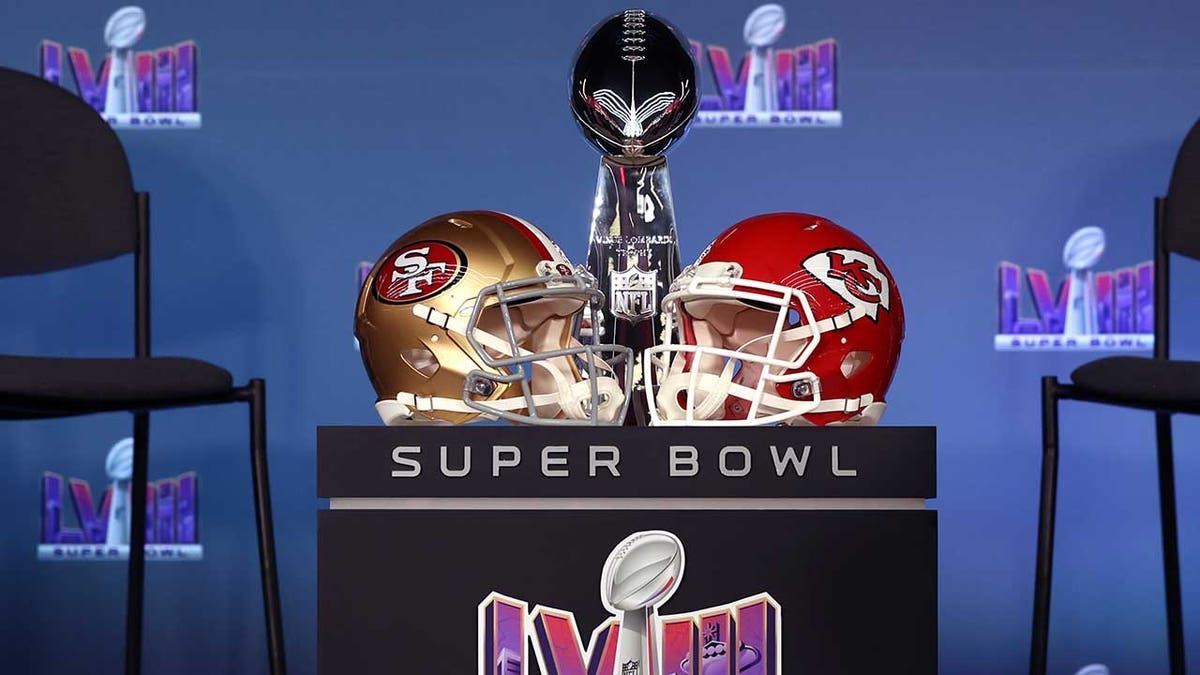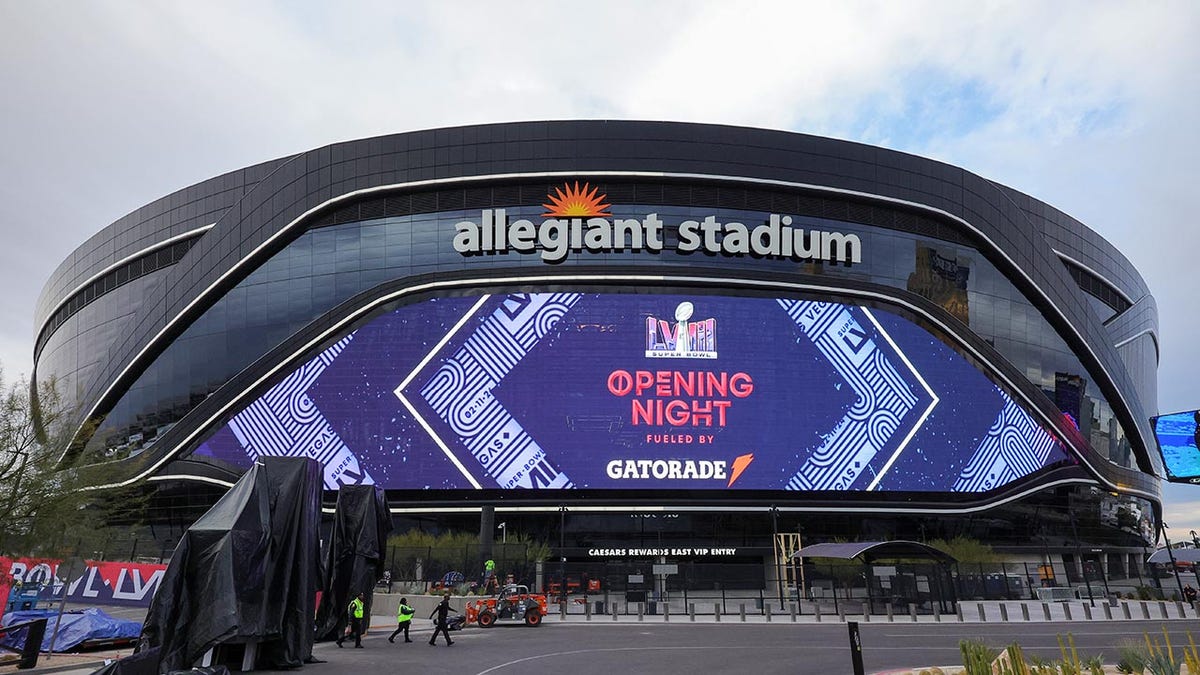Fox News Flash top headlines for February 9
Fox News Flash top headlines are here. Check out what's clicking on Foxnews.com.
The biggest NFL game of the year and one of the biggest sporting events in the world is the annual Super Bowl. The game is watched by tens of millions of Americans across the country.
On Sunday, Super Bowl LVIII will take place in Las Vegas at Allegiant Stadium between the Kansas City Chiefs and the San Francisco 49ers.
For decades, the Super Bowl's popularity has attracted advertisers that represent the biggest corporations in the world. Revenue from the Super Bowl totals hundreds of millions every year.
SUPER BOWL LVIII: WHAT TO KNOW ABOUT THE GAME
What company spends the most on Super Bowl ads?
Budweiser has maintained its reign as the pinnacle of Super Bowl advertising.
Despite Amazon's notable success in the Super Bowl commercial arena, Budweiser stands out as the leading spender, investing a substantial $470.5 million in Super Bowl ads from the inaugural big game in 1967 through 2020, according to research and data collected by Statista.
Are Super Bowl ads worth the price?
In recent years, the return on investment has been strong for companies spending money on advertising their products during the Super Bowl.
Some of the top brands for the 2023 Super Bowl included Dunkin' Donuts, Doritos, Tubi, Uber One, Pringles, Budweiser and Coca-Cola. Advertisers paid an average of $7 million to air a 30-second commercial during the 2022 Super Bowl broadcast, according to Statista.
Super Bowl ads have become a cultural phenomenon, and many viewers tune in specifically to watch the commercials. Memorable and well-executed ads can create a lasting impact and generate extensive discussion and media coverage.

The Vince Lombardi Trophy before a press conference ahead of Super Bowl LVIII at Allegiant Stadium Feb. 5, 2024, in Las Vegas. (Perry Knotts/Getty Images)
Creativity and consumer spending play a direct role in the Super Bowl as fans tend to buy from the advertisement they remember the most. Advertisements have an engaging role in the Super Bowl as the event's high viewership continues its dominance.
"Most people tend to run in the opposite direction of advertising, but [the] Super Bowl remains the one day where they don’t," Joe Glennon, an associate professor in the Department of Advertising at Temple University’s Lew Klein College of Media and Communication, said in a 2022 interview.
"There’s still no better way to reach 70, 80 or 90 million people all at once than the Super Bowl. There is also incredible brand-building power in having lots of people see you at the same time."
How much is a 30-second ad for the Super Bowl?
A 30-second advertisement for the Super Bowl has increasingly become more expensive over the last decade as viewership for the event continues to grow each year.
During the 2022 Super Bowl, when the Cincinnati Bengals played the Los Angeles Rams, a 30-second advertisement cost $6.5 million on average, according to statistics provided by Statista.
CHIEFS FINALLY TAKE DOWN JOE BURROW, BENGALS TO ADVANCE TO SUPER BOWL LVII
From 2017 to 2021, a 30-second ad cost an average of $5.4 million to $5.5 million. For the most part, advertising rates have consistently increased for the Super Bowl the last decade.
How much is a one-minute ad for the Super Bowl?
Most Super Bowl advertisements stay between the 15- to 30-second range. However, if an advertisement did break into the one-minute mark, it would likely cost the sponsor nearly double the average costs of a 30-second ad.
Super Bowl ad prices are among the highest for television advertising due to the massive viewership the event attracts.
Since brands pay such a high cost to show off their products, advertisements tend to emphasize an entertainment angle rather than a serious or logical pitch to consumers. As a result, a consumer trend has been created over the years surrounding Super Bowl advertisements as some non-sports enthusiasts tune in only to watch the commercials.
How has the cost of Super Bowl ads changed over the years?
The cost of a commercial on the Super Bowl has increased exponentially over the years, even after accounting for inflation.
During Super Bowl I in January 1967, the cost of a 30-second advertisement was abou $42,000, the equivalent of about $350,000 in 2022.
For the last two decades, the cost of advertising at the Super Bowl has progressively increased. By the late 1980s, prices had reached the million-dollar mark for a 30-second spot. In 1990, the cost of a commercial rose to $700,000. By 2010, it had increased to $2.95 million, according to Statista.
CLICK HERE FOR MORE SPORTS COVERAGE ON FOXNEWS.COM
In the early 2020s, the cost of a 30-second Super Bowl ad was between $5.5 million and $6 million. Advertisers were also exploring digital and social media components to maximize their reach beyond traditional television.
Actual costs can vary based on factors such as the specific year, the popularity of the teams playing and the overall economic climate. Super Bowl ad prices remain subject to fluctuations and are influenced by the unique appeal of the event as a marketing platform.
Why do brands release Super Bowl ads before the game?
As social media has become more popular over recent years, advertisers have started releasing Super Bowl commercials online before they appear on live television.
The logic behind the early release is it allows advertisers to reach audiences that do not tune into the Super Bowl.

A video board displays an advertisement for Super Bowl LVIII Opening Night at Allegiant Stadium Feb. 1, 2024, in Las Vegas. (Ethan Miller/Getty Images)
The early release of Super Bowl ads also allows brands to turn a single-day event into a more extended marketing campaign.
By creating a buzz before the game, during the game and even after the game, brands can maintain and leverage consumer interest over a more extended period, potentially improving the overall effectiveness of the advertising campaign.
What are the disadvantages of Super Bowl ads?
Apart from the hefty price tag, landing a Super Bowl ad spot poses the risk of harming a brand's image.
The perceptive Super Bowl viewers, known for their keen judgment of commercials, can readily spot any flaws in an ad's quality or message, potentially casting a negative light on the brand's standing.
CLICK HERE TO GET THE FOX NEWS APP
Whether Super Bowl ads are worth the price depends on a brand's specific goals, target audience and overall marketing strategy. Some brands find tremendous value in the exposure and cultural impact, while others may prefer to allocate their budgets to different advertising channels with more measurable outcomes.
It's a decision that requires careful consideration of the brand's objectives and resources.
